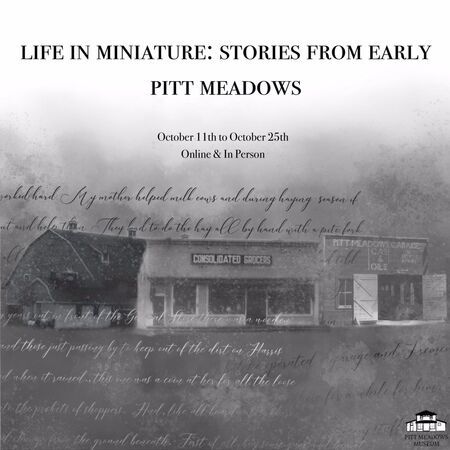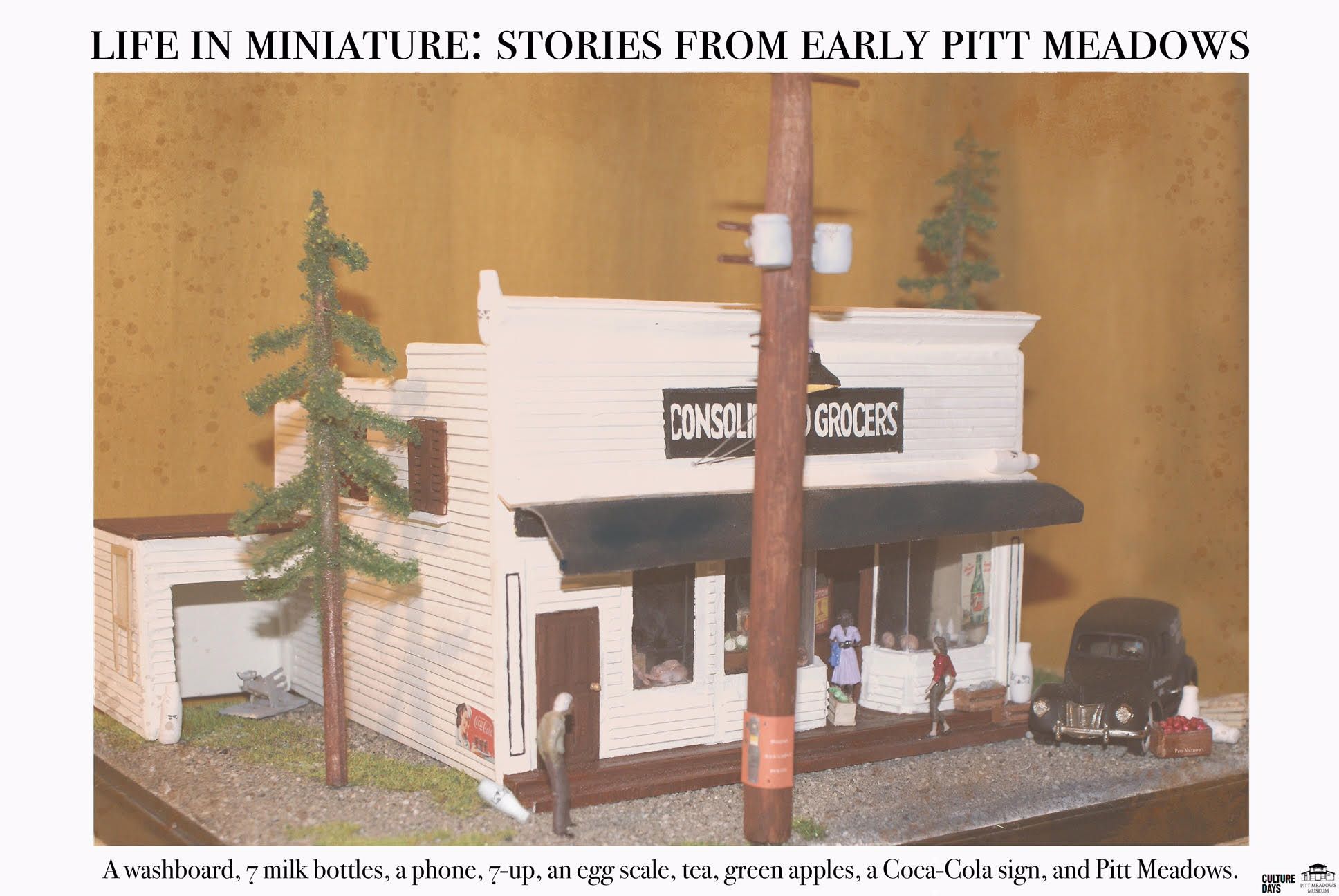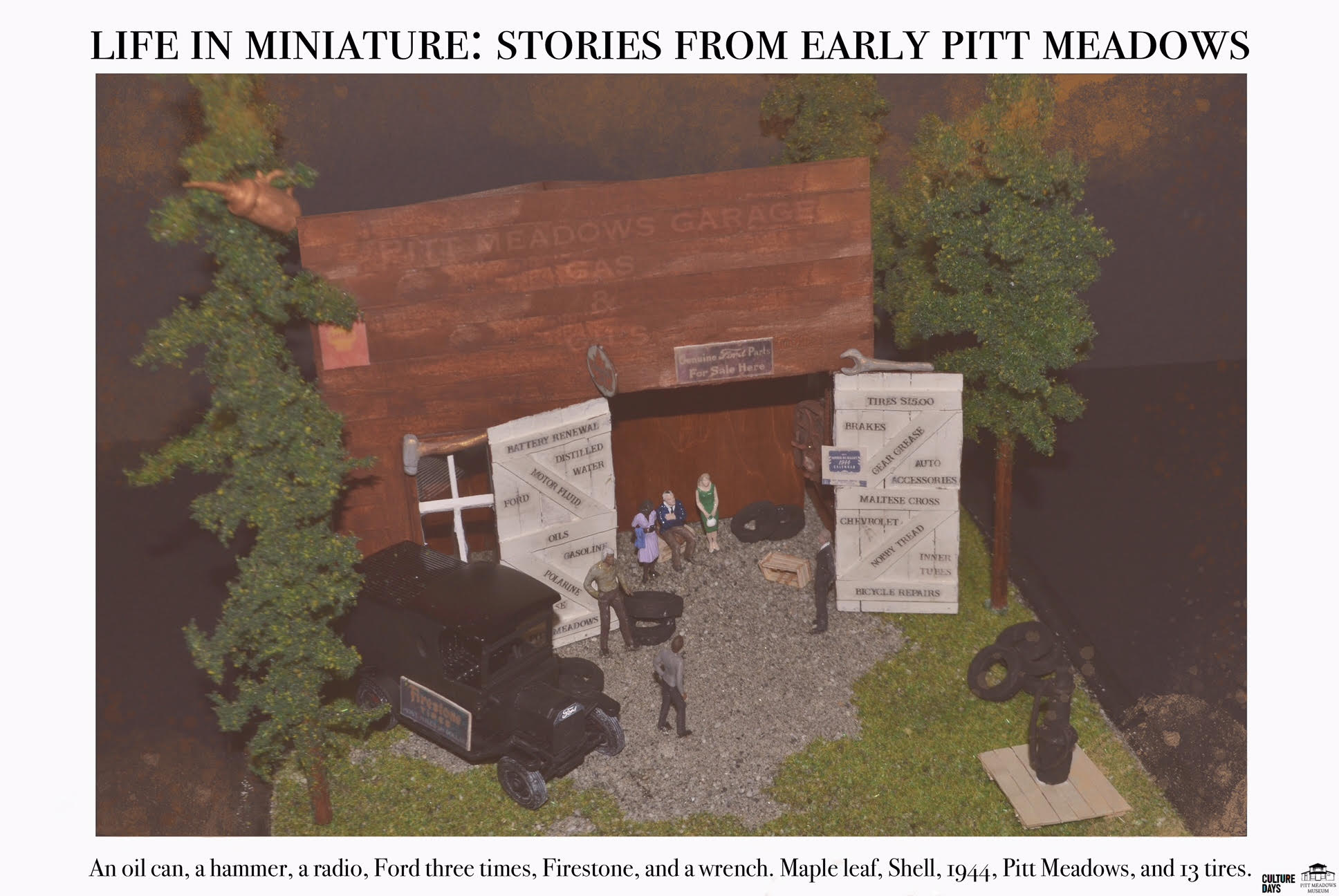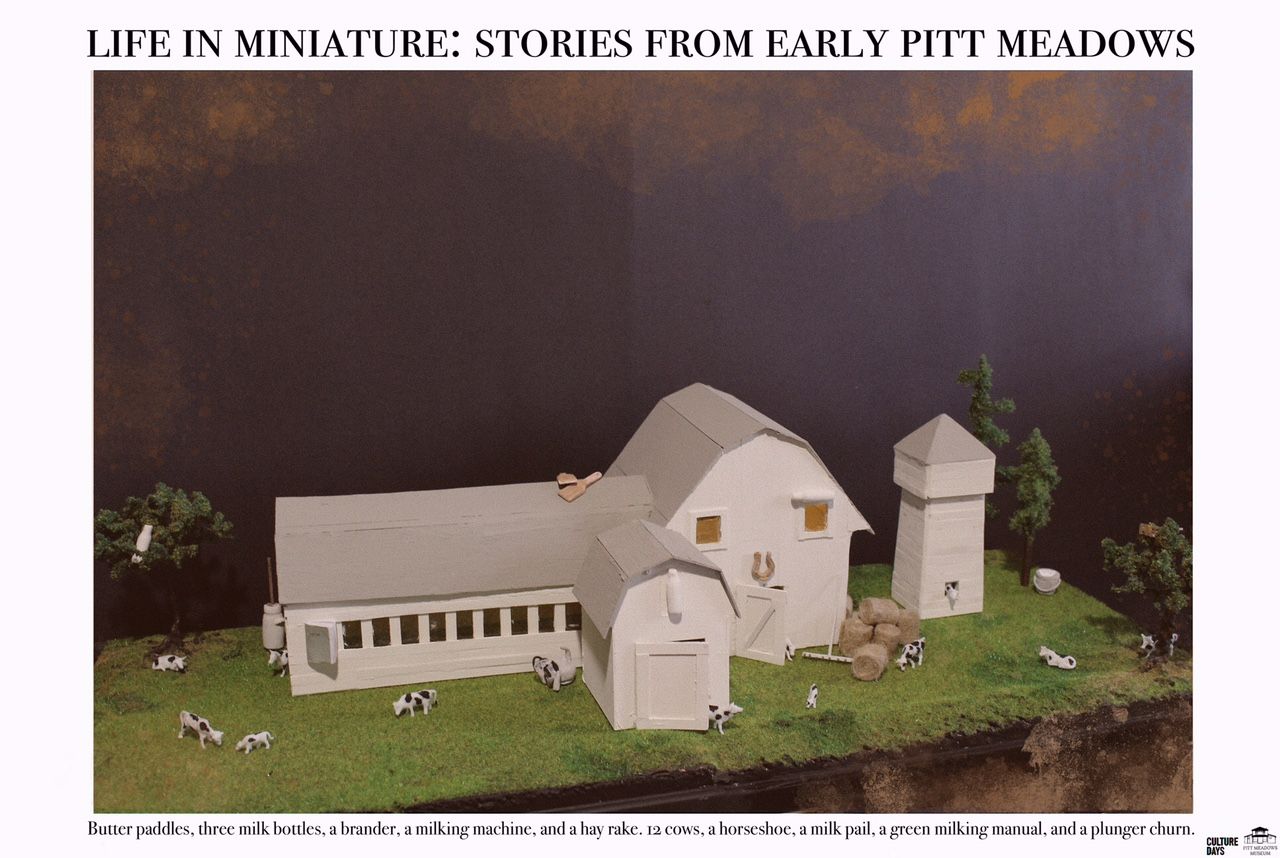
 604 465 4322
604 465 4322General Store Site 12294 Harris Road Pitt Meadows, B.C.
Click Here for Directions& Visiting Hours

Life in Miniature: Stories from Early Pitt Meadows
Pitt Meadows Museum Culture Days program this year is Life in Miniature: Stories from Early Pitt Meadows. An online and in-person activity where we explore miniature scenes based on everyday life in Pitt Meadows history. Every scene includes stories about the area, as well as a scavenger hunt of hidden artifacts. Everyone is welcome to participate for this free event. These three scenes were created for B.C. Culture Days and you can participate in the I-Spy, the models will also be available to view in person during our open hours.
We hope that you will join us in learning about stories from Early Pitt Meadows.
This event is produced for B.C. Culture Days 2020.
Consolidated Grocers and General Store

For many years, out in front of the General Store, there was a wooden boardwalk that allowed shoppers and those just passing by to keep out of the dirt on Harris Road and from the mud that formed when it rained. Like all raised boardwalks, this one was a coin catcher for all the loose change that did not make it back into the pockets of shoppers. And, like all boardwalks, there were plenty of children who knew how to extract said change from the ground beneath. First of all, buy some gum and chew it well. Then, find a long, thin stick, extract said gum and place it at the end of the stick. Then, use the stick to poke through the boardwalk board and catch the coins. Finally, take your loot and head into the store to buy more gum and other candy.
The Pitt Meadows Garage

The garage was a little to the south of the General Store and was owned by Mr. Orcutt. There was nothing particularly remarkable about the structure or the business carried out within, but it was a special place for adults and children alike. The reason – Mr. Orcutt had a radio, likely the first one in Pitt Meadows. Almost as good as the candy that could be bought at the store, the radio was of constant interest to the kids in the community and they could be found there when not in school, listening to radio shows.
Dairy Farms and Greybrook Farm
The Greybrook Farm, located on the north side of Dewdney Trunk Road between Rippington and Harris, was once known as the premiere dairy farm in the young community of Pitt Meadows. It was serviced by electricity many years before the rest of the municipality, giving it the advantage of as modern equipment that could be obtained at any period in its history. A corporate farm, the land was leased to various owners over the years from before incorporation of this municipality in 1914 until the early 1960’s when much of the land was sold for the development of the Pitt Meadows Golf Course that opened in June, 1963. At the official opening, then Mayor Harold Sutton told the gathering -- he had witnessed the farm land cleared from swamp to become one of the most productive dairy farms in the valley, but it had depreciated and was now returned to serve as a permanent recreation service for the people of the Lower Mainland. (History of Pitt Meadows, McDermott, 1967). Today, all that remains to remind us of its glory days is the old Greybrook farmhouse. At one time dairy farming was the mainstay of Pitt Meadows. In fact, it was the very reason the community existed. With farms from the lowlands on the banks of the Fraser and Pitt Rivers and through the highland area to the lowlands to the north and south of the Lillooett/Alouette River, many of these farm families and corporate entities are remembered in the names of Roads in the community including O’Neil, Park, McMyn, Kennedy, Mitchell, and so many more. With the advent of better dyking techniques brought to Pitt Meadows by the Dutch in the early 1950’s, dairying expanded into the area that would be known as Pitt Polder. Lease hold dairy farmers operated there for decades under the ownership of the Pitt Polder corporation. They were the first successful dairy farmers in an area known for its spring flooding that had driven out all other farming attempts before the 1950’s. Today, while there is still a community of dairy farmers in Pitt Meadows, agriculture has moved to more intensive practices such as green housing and berry farming. However, with the generous donation of photographs and objects, the Museum has a good representation of what life was like in earlier days on many of these farms.






